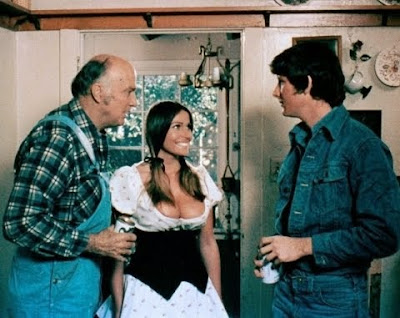Groove
By the time rave culture hit South Florida, I was more or less done with the entire club scene. So for me to relay that the events in 2000's GROOVE are you-are-there accurate or otherwise would be thoroughly dishonest. It does seem somewhat authentic, with its glimpses of Red Bull cans and shadowy locations, secured without the cooperation of law enforcement. The widespread use of Ecstasy. The lack of a bar serving alcohol. Lots of bottled water. In GROOVE, there is also an overdose, but nothing too grim. No one dies or even vomits.
If you've ever partied all night, whether weary or chemically altered or both, you'll recognize moments in this movie. Where I believe its true strength lies. The sudden soul baring to strangers. A group all lying on top of each other and saying funny things. Someone getting up and announcing something random. Nonsensical philosophy.
The music and the dance sequences are terrific. Use of slow motion is mostly effective.
The rave in GROOVE takes place in an abandoned warehouse in San Francisco. We begin with spearheader Ernie (Steve Van Wormer) and his cronies mapping out the battle plan. Ernie is not driven by how much he can charge a head but lives for the rave itself, the experience, and "the nod". Then we meet two brothers: the fun-loving Colin (Denny Kirkwood) and the more mature, responsible David (Hamish Linklater) who will fight and hug and reminisce as the X takes effect and various relations develop throughout the night. Colin surprises his girlfriend Harmony (Mackenzie Fergens) with a marriage proposal, but we'll learn that he's not quite ready for such a commitment. David will meet Leyla (Lola Glaudini), a frustrated woman from the East Coast who is older than the rest of the ravers. Who's stayed at the party while many of her friends went on to have careers and babies.
The plot introduces other characters, including a guy who supplies everyone with various substances ("You've just won a trip to your cerebral cortex!") and an argumentative gay couple who never make it to the party - they were given the wrong map. We see them in their car, getting out of it, fighting. It felt contrived. You could rightly say that director Greg Harrison's script does little to flesh out his characters, but in hindsight it sort of makes sense. The night is a flash, a blur, a memory almost even as it's happening. Two characters will share moments of deep conversation and connection, then a few hours later find themselves with half-hearted promises to stay in touch. That's realistic. As are the final scenes with Colin and Harmony.
What is perhaps not so realistic is how Ernie can afford talents like DJ Digweed (appearing as himself). Does the famed vinyl spinner find that the true payment is adoration from his fans (as seen late in the movie)? Does he too do it all for "the nod"?
P.S. The cop who busts the party is played by none other than Nick Offerman, later of Parks and Recreation. Perfect casting and funny as hell to see all these years later.



Comments